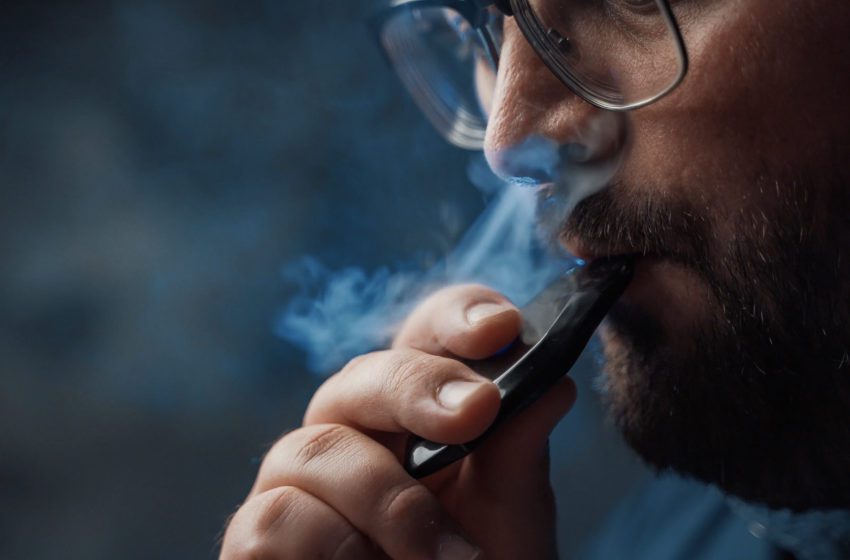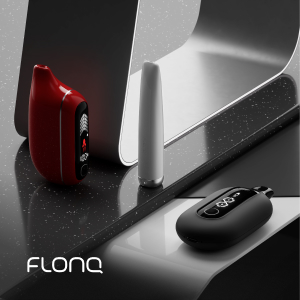Congress May Allow FDA to Regulate Synthetic Nicotine
- News This Week Synthetic Nicotine
- January 4, 2022
- 7 minutes read

Credit: DedMityay
New Jersey Congresswoman Mikie Sherrill, on Dec. 15, introduced the Clarifying Authority Over Nicotine Act of 2021 — a bipartisan bill designed to give the U.S. Food and Drug Administration (FDA) the authority to regulate synthetic nicotine products just as it regulates nicotine products made or derived from tobacco. In a press release, Rep. Sherrill stated, “This bill will ensure all tobacco products, including products made with synthetic nicotine, are regulated by the FDA in order to protect kids in our communities and those who may seek to use these products.”

In a blog post, Bryan Haynes and Michael Jordan, attorneys with Troutman Pepper, state that, as it stands, the Federal Food, Drug, and Cosmetic Act (FDCA) defines “tobacco product” as “any product made or derived from tobacco that is intended for human consumption, including any component, part, or accessory of a tobacco product.” 21 U.S.C. § 321(rr)(1) (emphasis added). As the FDA concedes on its website, “it’s possible that a disposable, closed system device that contains an e-liquid with truly zero nicotine (or synthetic nicotine) would not be regulated by the FDA as a tobacco product.”
That said, there are other ways FDA might try to regulate synthetic nicotine, whether under its authority to regulate a “component” of a tobacco product or as a “drug.” In November, FDA Center for Tobacco Products Director Mitch Zeller discussed the “component” aspect of the FDCA’s definition of “tobacco product” and suggested “that components and parts could include everything from coils and batteries to all the ingredients comprised in producing e-liquids (such as flavorings and vegetable glycerin) even if the product does not contain nicotine.” He added, “That’s an assessment that we need to make on a case-by-case basis based upon the totality of all the information that we have.”
FDA could also seek to regulate synthetic nicotine as a drug. The FDCA defines drug, among other things, as “articles (other than food) intended to affect the structure or any function of the body.” 21 U.S.C. § 321(g)(1). To the extent synthetic nicotine is intended to affect a consumer’s body, FDA could attempt to assert jurisdiction. Indeed, in the 1990s, FDA tried to regulate nicotine as a “drug” and cigarettes and smokeless tobacco as “drug delivery devices.” The Supreme Court in FDA v. Brown & Williamson Tobacco Corp. found FDA lacked such authority, but one of the Court’s key findings was that Congress had passed “tobacco-specific legislation [that] effectively ratified the FDA’s previous position that it lacks jurisdiction to regulate tobacco.” Today, things are different. The 2009 Family Smoking Prevention and Tobacco Control Act gave FDA the authority to regulate tobacco products. Should FDA regulate synthetic nicotine as a drug today, it could point to recent legislation from Congress giving FDA a role in this space more broadly. So far, however, FDA has not taken this approach.
With FDA having ordered more than five million tobacco-derived, e-cigarette products off the market, several manufacturers appear to have turned to synthetic nicotine to avoid FDA’s rigorous (and costly) premarket review process. In general, that process requires those who seek to market new tobacco products to demonstrate that their sale is “appropriate for the protection of public health” with the support of scientific evidence. 21 U.S.C. §387j(c)(4), (5). After receiving a denial from FDA of his premarket review applications, one vaping company owner took to Facebook to announce the company’s switch to synthetic nicotine, adding: “We never wanted to switch to [synthetic nicotine], but the FDA forced us to make that decision as we have so many adults relying on us [for alternatives to cigarettes].”
Lawmakers have taken notice. In November, a flurry of investigations and calls to regulate synthetic nicotine products reached a new high. On November 16, nine senators sent a letter to the FDA imploring the agency to regulate synthetic nicotine products. The authors expressed concerns that e-cigarette manufacturers like Puff Bar are switching to synthetic nicotine to skirt FDA oversight and pre-market review requirements to continue selling their products — including flavored products — that they assert appeal to youth. That same day, the North Carolina attorney general launched an investigation into Puff Bar for similar reasons. And, on November 8, the House Oversight Committer’s Subcommittee on Economic and Consumer Policy sent letters to e-cigarette manufacturers Puff Bar and Next Generation Labs LLC, requesting extensive records pertaining to the production and marketing of the companies’ synthetic nicotine products.
Time will tell if Congress will pass Rep. Sherrill’s Clarifying Authority Over Nicotine Act of 2021. Given the uptick in scrutiny of synthetic nicotine products, however, there is a strong chance Congress could give FDA a clear mandate to regulate synthetic nicotine in 2022.
